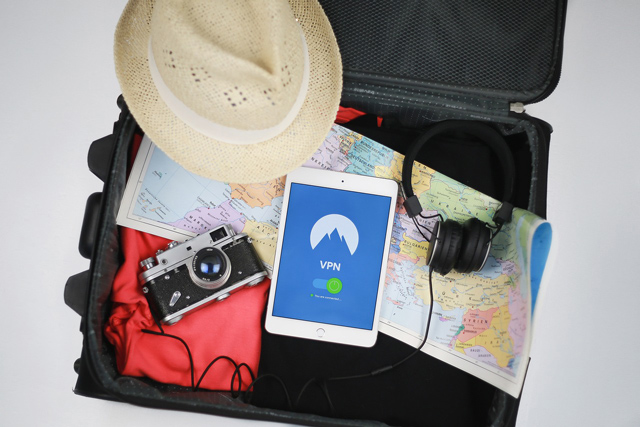
Essential and Practical Packing Tips for Traveling with a Toddler

When we go on holiday, we don’t just want to relax—we also want a break from everyday routines. This applies to both kids and adults. The rhythm is different, the schedule shifts: later mornings, evening walks, leisurely dinners. Meal times may get pushed around, but we still aim to keep up with at least three proper meals a day—especially when traveling with a young child.

Self-catering = freedom
One of the biggest advantages of an apartment holiday is the flexibility to manage your own meals. It’s not only budget-friendly, but it also allows you to stick to your usual diet, accommodate any food intolerances, and, of course, eat the things you truly enjoy.
Upon arrival: check the kitchen before hitting the shops
The first thing we do after picking up the keys is check what’s already in the kitchen. Many apartments have basic seasonings like salt, pepper, paprika, some oil, sugar, coffee, or tea. Once we see what’s available, we head to the store—this way we don’t overbuy.
We usually do our main grocery shop on the first day so the rest of the week runs more smoothly. Having a fridge is a major plus—it lets us stock up on essentials like dairy products and fresh veggies. For fresh bread, we prefer picking it up daily from a local bakery, ideally wholegrain.
Shopping as part of the holiday vibe
Grocery shopping isn’t just a chore—it’s part of the travel experience. We love discovering local produce, food culture, and flavors. Our daughter often marvels at unfamiliar fruits or colorful packaging. It helps all of us ease into our new surroundings and feel “mentally arrived.”
Keep cooking simple—and quick
Nobody wants to spend hours in the kitchen while on holiday. That’s why we stick to meals that take no more than 20–30 minutes to prepare, require just a few ingredients and tools, and can be easily adapted: pasta with sauce, rice-and-veg bowls, egg-based dishes, fresh salads.
No matter where you are in the world, you’ll almost always find these budget-friendly staples: canned beans, corn, fish, tomato sauce, rice, pasta, dried legumes. With a bit of creativity, they turn into filling and wholesome meals.
Lunch: eat out or cook in?
Since we’re usually out exploring during the day, we’re rarely at the apartment around lunchtime. Instead, we grab lunch on the go. We always check in advance where we might stop to eat, depending on the day’s itinerary. Usually, we opt for a local restaurant or a sandwich bar. It’s a great way to try regional dishes—asking your host for recommendations helps avoid tourist traps and leads to more authentic food experiences.

For full-day outings: plan ahead
Before a full-day trip, we make sure we’re well prepared. We always eat breakfast in the apartment to fuel up. Then we pack something to snack on—usually sandwiches (which we try to eat early in the day), plus non-perishable options like fruit, wholegrain crackers, and granola bars that fit easily in a backpack.
Hydration is key, especially in warm weather. And we always ask ourselves: do we need to prep something for dinner too? If we’re getting back late, it’s helpful to have a plan.
For full-day outings: plan ahead
Before a full-day trip, we make sure we’re well prepared. We always eat breakfast in the apartment to fuel up. Then we pack something to snack on—usually sandwiches (which we try to eat early in the day), plus non-perishable options like fruit, wholegrain crackers, and granola bars that fit easily in a backpack.
Hydration is key, especially in warm weather. And we always ask ourselves: do we need to prep something for dinner too? If we’re getting back late, it’s helpful to have a plan.
Dinner: out and about, or homemade and cozy?
Evenings are perfect for a laid-back dinner. If the day’s been long and we didn’t plan ahead, we might eat out. But when we return to the apartment in good time, we like to throw something together ourselves—simple meals like sandwiches, egg dishes, salads, or a quick hot dinner. The key is speed and simplicity.



Personal tip: easy dinners = less stress
A few years ago, I used to say, “I’m not cooking on holiday!” But I realized that planning just 3–4 easy dinners for the week actually reduces stress. It’s way easier than trying to decide each evening where to go, what to eat, and how to avoid overpriced, mediocre restaurants. Plus, it saves us a lot of money.
We cook meals that need minimal equipment, few ingredients, and come together fast. Our holiday motto: keep it minimal, not gourmet.
Fresh fruit and vegetables

Dairy / dairy alternatives

Bakery items
Grains and pantry staples
Basic seasonings & oil
Protein sources
Healthy snacks
For our 4-year-old
Don’t forget basic household supplies if not provided:

With a little planning and mindfulness, eating well on holiday doesn’t have to be a hassle—it can be part of the joy. Simple, tasty, and healthy meals help save both money and energy, leaving more room for what really matters: making memories together.
@ Copyright - WanderingKite | All rights reserved! | Privacy Policy